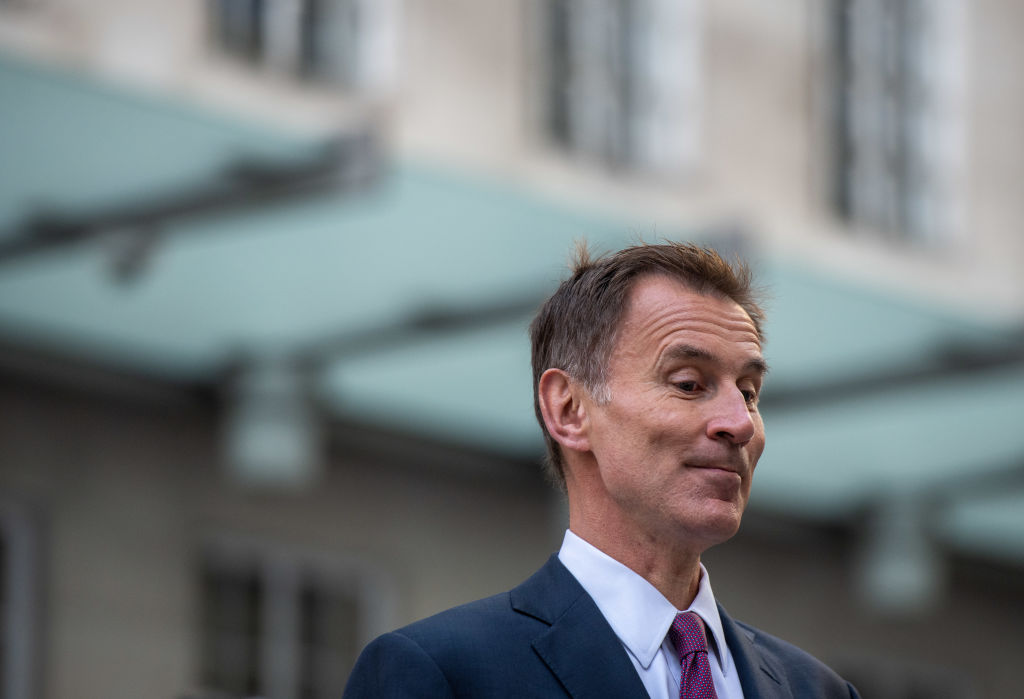A blank cheque for two years of capped energy bills was a perverse kind of plan

Clearly, ambiguity in our politics is rife. But the latest Chancellor of the Exchequer, Jeremy Hunt, could not have been clearer when he told Parliament the government’s current support for energy bills would continue to April, at which point he will look to bring in “a new approach that will cost the taxpayer significantly less…and better incentivise energy efficiency.”
He is right: it was always perverse to ask the taxpayer to write a blank cheque for two years as part of the energy support package and ignore the huge potential gains in increasing our energy efficiency.
It is vital to address some of the causes of the current energy crisis, not just treat the symptoms. For the next six months at least, the government is paying huge sums to cover most of the energy price rises for households, in what is already a cost-of-living crisis, fuelled by inflation, itself fuelled by energy price increases. Meanwhile, the National Grid and energy regulator have both warned of blackouts when energy demand increases as we try to keep warm over the winter.
Behind these scenes, the UK energy system is hugely inefficient, wasting billions and adding to energy security problems. It is truly shocking that most energy is lost even before it gets to the point of use through conversion, generation and transmission and distribution losses. More energy still is lost at the point of use, for instance if lighting hasn’t been updated to LED, or if heating, ventilation, and air conditioning systems are inadequate or are not properly tuned.
But while energy efficiency tends to conjure images of woolly sweaters and thermostats, it’s not just households that are to blame. As it turns out, the public sector is wasting more energy than households could save.
Over 60 per cent of energy in the UK is used in the non-domestic sectors and public sector buildings in the UK use a comparable amount of energy as private domestic households. In 2019, the parliamentary Business, Energy and Industrial Strategy Committee said there could be as much as £100 bn in savings from energy efficiency – and that was at the cost of energy then, which is a fraction of what it is now.
Some 40 per cent of public sector energy is used by the NHS, yet two thirds of its lights are inefficient and only 33 per cent have been replaced for LEDs. Little in the way of on-site clean energy generation has ever been done. The Ministry of Defence controls 115,000 buildings and 1 per cent of the entire UK land mass. Transport for London, one the largest (if not the largest) single users of electricity in the UK, sources almost all of it directly from the national grid, and facing severe financial difficulties, it simply can’t afford to waste it. The theme goes on and on, through universities, schools, local authorities, and other government buildings.
When we talk about insulation, we often think of massive changes to building which would take years. But there are also simple solutions, using established technologies like solar energy. Or, for example, LED light bulbs or more efficient heating equipment.
The public sector should be at the front of the pack in this. Only then can it credibly mandate or achieve critical change.
Part of the review into reducing usage should include plans to make all public government buildings find significant energy savings before next winter.
The government should at least match the EU’s target of 15 per cent reduction in gas and electricity use. This would be a first step to seize the “low hanging fruit” and ramp up from there. Public buildings should be audited for energy efficiency opportunities and commercially feasible solutions should be compulsory. Once mandated for the public sector, the same targets and requirements for implementation could be applied to the private sector.
If the government took leadership, it would be delivering on one of the largest opportunities for cost as well as carbon emission reductions. If the private sector followed suit and stopped wasting one of the most essential and expensive inputs into the economy, the UK could begin to unlock one of the most valuable sources of economic growth of our generation, not to mention cultivating a significant competitive advantage.
